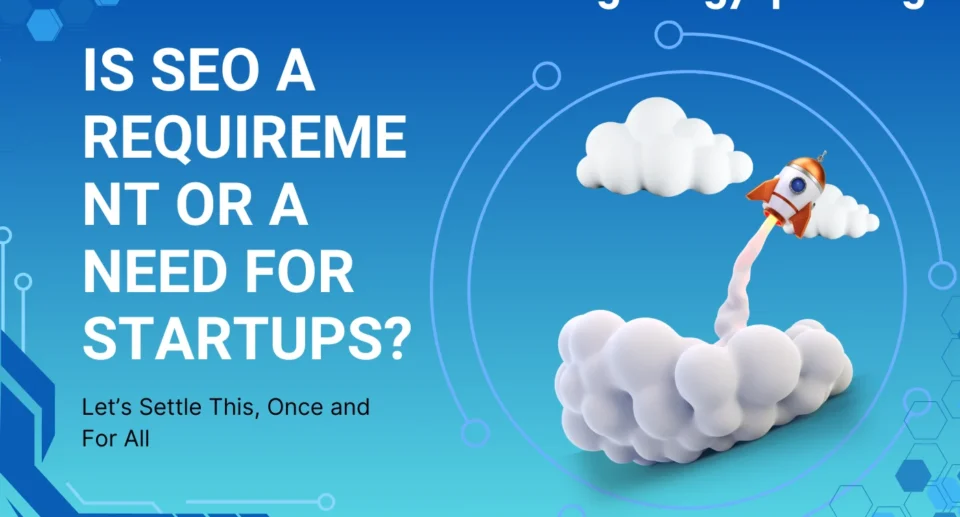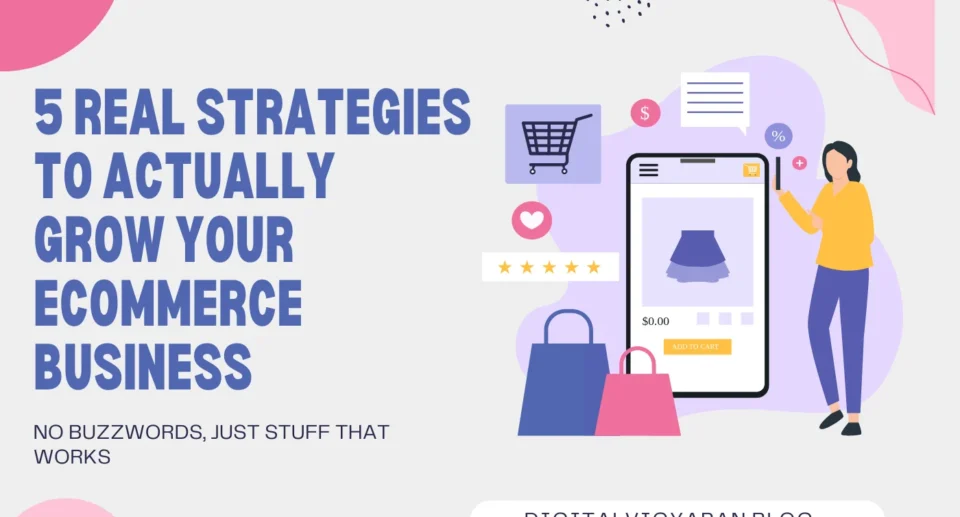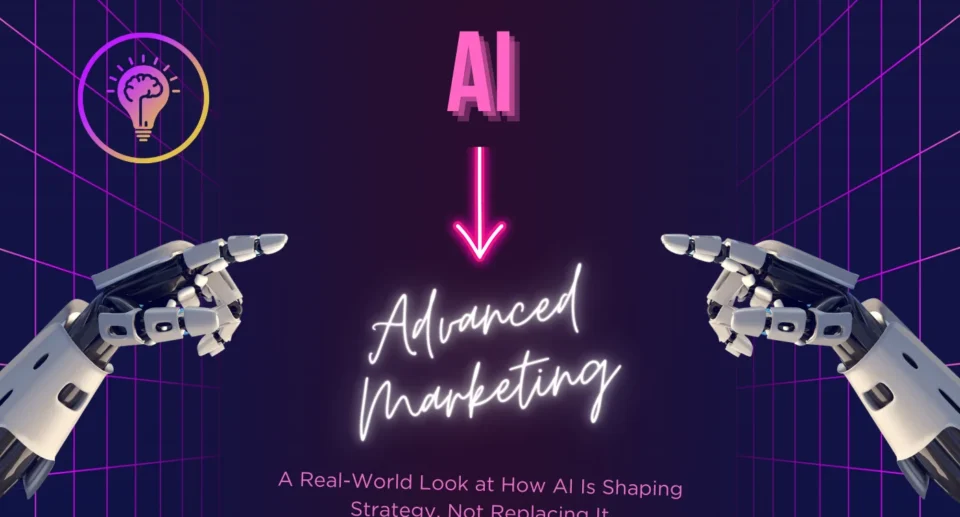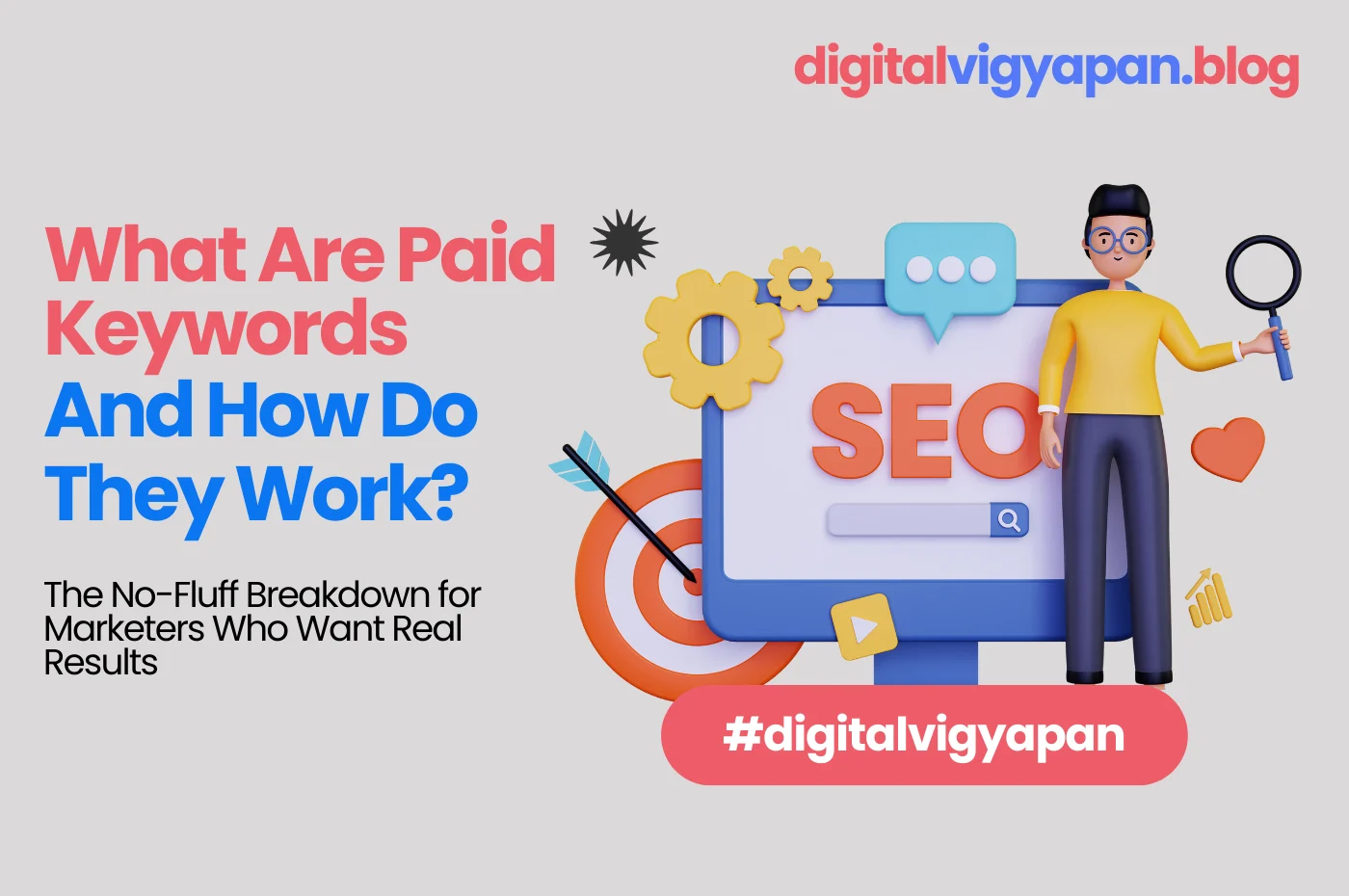Is SEO a Requirement or a Need for Startups?
Jay Pathak
- April 24, 2025
- 6 Min Read

Let’s Settle This, Once and For All.
Startups today are moving at breakneck speed. You’ve got MVPs to launch, investor decks to pitch, and a to-do list that feels like it’s breeding overnight. So when someone brings up SEO, it’s understandable if your gut reaction is:
“Cool, but we’ll get to that later.”
But here’s the thing most early-stage founders miss:
Later is already too late.
So is SEO just a “nice-to-have” or is it a core part of your startup’s growth engine?
Let’s break it down. Real talk. No fluff.
🎯 First, Let’s Define the Playing Field
SEO (Search Engine Optimization) is not just ranking higher on Google. It’s about:
Getting discovered when people search for what you solve
Building long-term organic visibility
Driving high-intent, low-cost traffic
Creating trust before someone even clicks
Now ask yourself as a startup:
Do you want qualified leads?
Do you want to spend less on ads over time?
Do you want to build credibility with zero ad spend?
If your answer is “yes,” then SEO isn’t just a marketing channel—it’s a strategic foundation.
🚀 SEO for Startups: Why It’s Not Optional
Let’s get this straight:
SEO is not something you do after your brand is big. SEO is how your brand becomes big.
Here’s why it’s absolutely critical for startups:
You’re Competing With Wallets 10x Bigger Than Yours
Paid ads are awesome for quick wins. But in most industries, CPC (cost-per-click) is brutal.
Your competition?
Well-funded unicorns
VC-backed DTC giants
SaaS behemoths spending ₹5–10L/month on Google Ads
You? You’re working with limited cash flow and a run rate you’re praying doesn’t run out.
SEO helps level that playing field.
Sure, it takes time. But once you rank, you’re not paying per click. You’re getting visibility every single day without burning cash.
Your Audience Is Already Searching for You
Let’s say you’ve built a tool for freelancers to automate invoices.
Guess what people are typing into Google right now?
“best invoicing app for freelancers”
“how to send invoices automatically”
“freelance invoice generator India”
These are buying-intent keywords. These are people who are actively looking for a solution. If you don’t show up—your competitors will.
SEO helps you intercept this demand instead of trying to create it.
Trust Is Everything, and SEO Builds It Organically
In a world of scammy dropshippers and sketchy SaaS products, trust is currency.
And nothing says “we’re legit” like showing up organically on the first page of Google.
Why?
Because people know you didn’t buy that spot.
You earned it.
And psychologically, that makes your brand feel more established, more credible, and more worth checking out.
Add to that some blog content, a few glowing reviews, and a smartly optimized site? You’ve just turned a random visitor into a warm lead.
- SEO Fuels Every Other Channel
Here’s the part most startups forget:
Your SEO strategy feeds your paid ads, content strategy, and even social.
How?
SEO tells you which keywords your audience is obsessed with
It uncovers competitor blind spots
It reveals search intent—what people really want
It builds content that can be repurposed across channels
So when you finally decide to run ads, you already know which headlines convert. When you post on LinkedIn, you’re not guessing the topic.
SEO isn’t a silo. It’s a blueprint.
You’ll Save a TON on CAC (Customer Acquisition Cost)
Let’s get into numbers.
If it costs you ₹200 to get a visitor from ads—and your conversion rate is 2%—you’re spending ₹10,000 to get 1 customer.
With SEO, once your content is ranking, traffic is free.
Your CAC drops. Your margins increase. Your runway stretches.
Is it slower? Yes.
Is it harder to measure in the first few weeks? Also yes.
Is it worth it for long-term scalability? Absolutely.
🤔 “But We’re Just Starting—Do We Really Need SEO Now?”
Short answer: You don’t need to go all-in. But you do need to start.
Here’s what that looks like for an early-stage startup:
✅ 1. Get Your Tech SEO Right from Day 1
Make sure your website:
Loads fast
Is mobile-friendly
Has proper meta tags, alt text, and sitemaps
Doesn’t have broken links or duplicate content
This stuff matters. Fixing it later is a pain.
✅ 2. Create Foundational Content Around Your Core Use Case
If you’re building a SaaS for small retail stores, start creating content like:
“How to manage retail inventory without Excel”
“POS vs ERP for small shops – What’s better in 2025?”
“How to train staff on a new billing system”
These are long-tail, low-competition keywords that can help you start showing up in niche searches.
✅ 3. Set Up Google Search Console & Basic Analytics
If you don’t track it, you can’t grow it.
Start monitoring:
Which pages people are finding
What keywords they’re using
Where you’re showing up (even on page 2)
This is how you learn and improve.
✅ 4. Focus on One Pillar Page at a Time
Don’t spread thin. Build one amazing resource that targets a high-intent keyword and supports your core product. Think 2,000+ words, visuals, real value.
Link to it from your home page. Promote it. Build mini-content around it.
Make it your “go-to” post that Google starts to love.
⚠️ What Happens If You Ignore SEO?
Let’s be real: you can survive without SEO in the beginning. But you’re going to rely heavily on:
Paid ads (expensive)
Word of mouth (slow)
PR (unpredictable)
And six months in, when growth plateaus, you’ll wish you started building your organic presence earlier.
Because SEO takes time. Google doesn’t rank you overnight. It rewards consistency and quality over time.
So every day you delay starting, you push your visibility window further away.
🧠 Final Thought: SEO Is Not a Luxury—It’s a Leverage Tool
If you’re serious about long-term, compounding growth—SEO is a need, not a “maybe later.”
It’s not about chasing trends or gaming the system. It’s about:
Understanding your audience
Solving their problems
Showing up consistently where they search
Startups that treat SEO as a core function—just like product dev or customer support—build brands that outlast the ones only chasing the next paid campaign.
So if you’re reading this thinking, “Damn, we should probably get started,” — you’re already on the right track.






